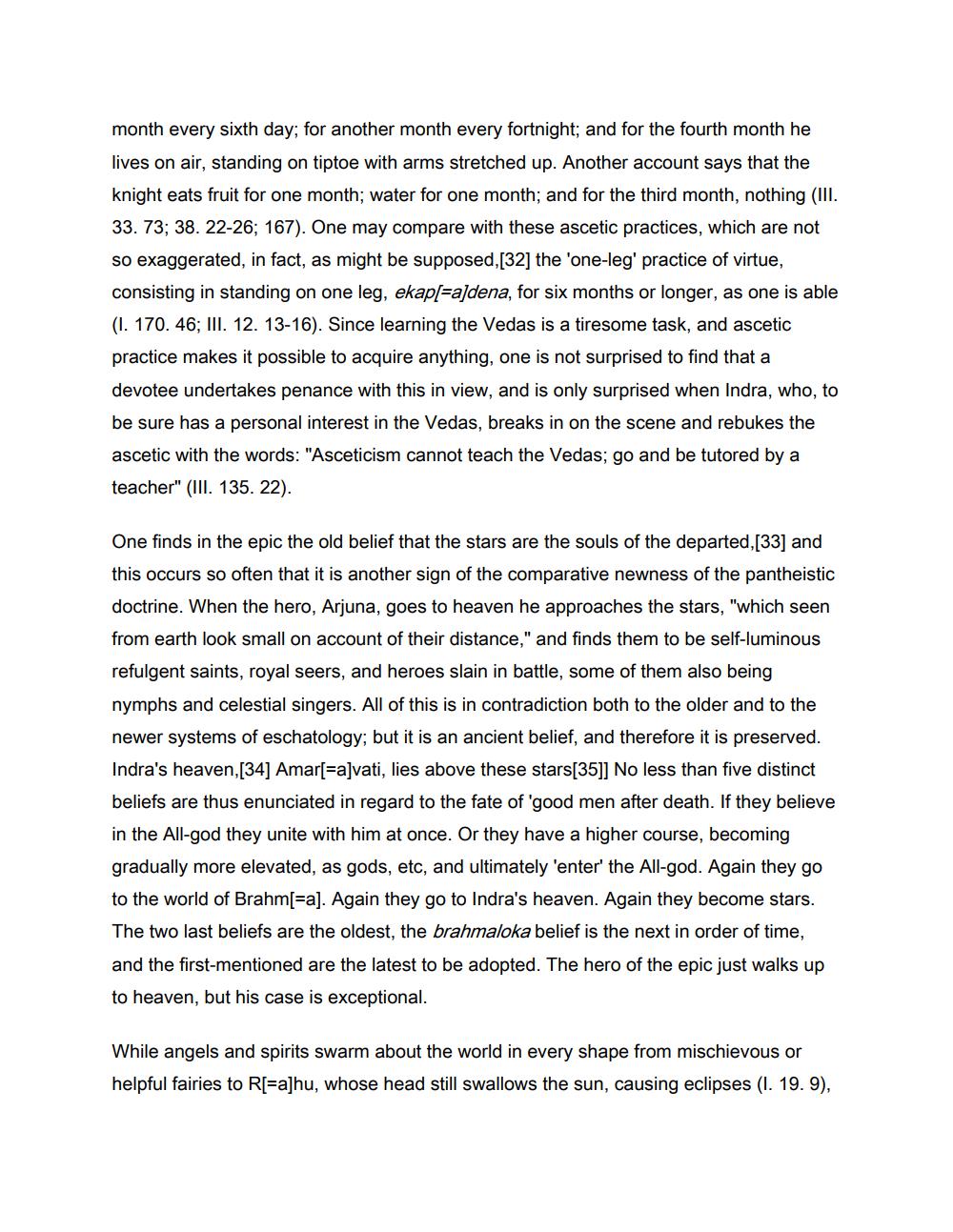________________
month every sixth day; for another month every fortnight; and for the fourth month he lives on air, standing on tiptoe with arms stretched up. Another account says that the knight eats fruit for one month; water for one month; and for the third month, nothing (III. 33.73; 38. 22-26; 167). One may compare with these ascetic practices, which are not so exaggerated, in fact, as might be supposed, [32] the 'one-leg' practice of virtue, consisting in standing on one leg, ekap[=a_dena, for six months or longer, as one is able (1. 170.46; III. 12. 13-16). Since learning the Vedas is a tiresome task, and ascetic practice makes it possible to acquire anything, one is not surprised to find that a devotee undertakes penance with this in view, and is only surprised when Indra, who, to be sure has a personal interest in the Vedas, breaks in on the scene and rebukes the ascetic with the words: "Asceticism cannot teach the Vedas; go and be tutored by a teacher" (III. 135. 22).
One finds in the epic the old belief that the stars are the souls of the departed, [33] and this occurs so often that it is another sign of the comparative newness of the pantheistic doctrine. When the hero, Arjuna, goes to heaven he approaches the stars, "which seen from earth look small on account of their distance," and finds them to be self-luminous refulgent saints, royal seers, and heroes slain in battle, some of them also being nymphs and celestial singers. All of this is in contradiction both to the older and to the newer systems of eschatology; but it is an ancient belief, and therefore it is preserved. Indra's heaven, [34] Amar[ra]vati, lies above these stars[35]] No less than five distinct beliefs are thus enunciated in regard to the fate of 'good men after death. If they believe in the All-god they unite with him at once. Or they have a higher course, becoming gradually more elevated, as gods, etc, and ultimately 'enter' the All-god. Again they go to the world of Brahm[ra]. Again they go to Indra's heaven. Again they become stars. The two last beliefs are the oldest, the brahmaloka belief is the next in order of time, and the first mentioned are the latest to be adopted. The hero of the epic just walks up to heaven, but his case is exceptional.
While angels and spirits swarm about the world in every shape from mischievous or helpful fairies to R[=a]hu, whose head still swallows the sun, causing eclipses (I. 19.9),




